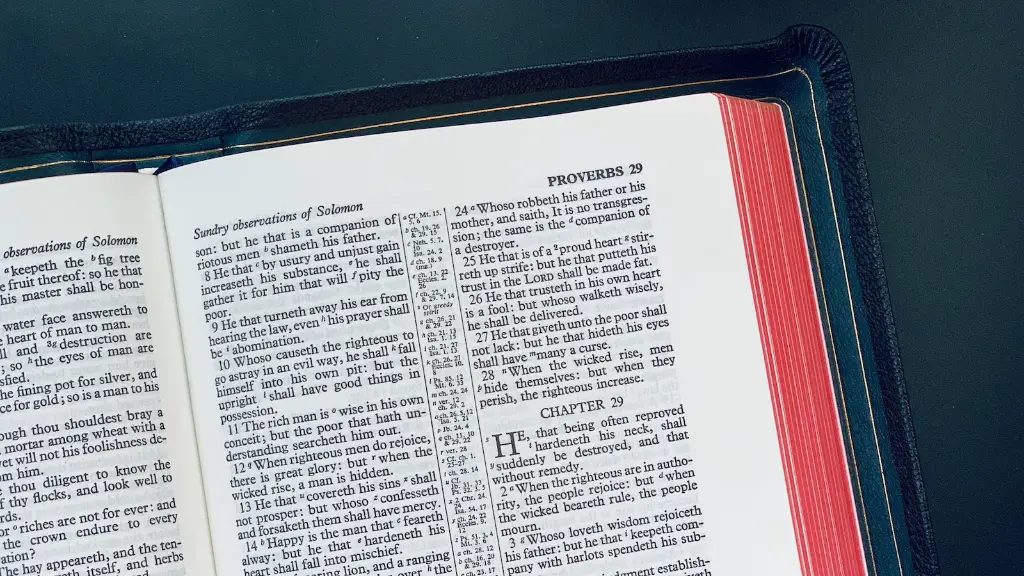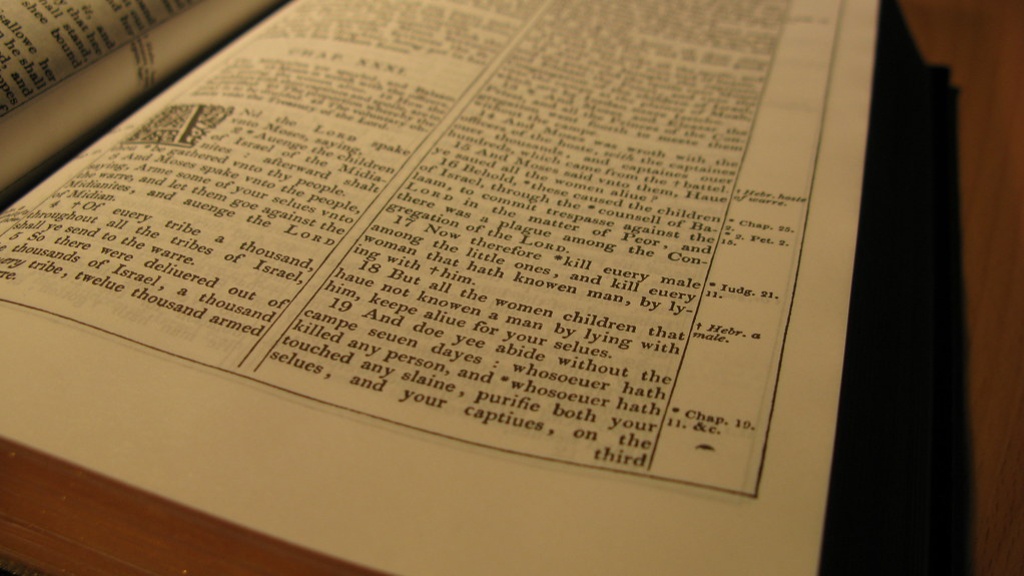The Bible
The Bible is the most translated and widely circulated book in history and is the world’s best-selling book. It is composed of 66 books and was written over a span of more than 1,500 years by various authors. It is divided into two parts – the Old Testament and the New Testament. Together they contain almost 1,100 pages with 783,137 words and 3,566,480 characters.
The Bible is a collection of stories, parables, poetry, prophecies and teachings focusing on the relationship between humans and God. It also includes historical accounts, stories, and laws of the ancient Jews and Christians. As a foundational text for both Judaism and Christianity, it offers insight into the beliefs, practices, and values of any associated beliefs.
The Bible is not only considered a historical document, but is a powerful spiritual text, interpreted in different ways by Jews, Catholics and Protestants. Many people turn to it for guidance in difficult times, direction in making decisions and comfort during despair. The Bible is revered and respected by many for its spiritual insight, its ability to bring people closer to God and its potential to transform their lives personally.
The Bible addresses many issues and teaches numerous lessons. It is designed to provide comfort and reassurance, as well as guidance and direction. It speaks of the love of God and encourages us to live in peace with others. It teaches us to take responsibility for our actions and be accountable to God and each other. The Bible also speaks of the importance of loving one’s neighbor, caring for the vulnerable and poor, and striving for justice.
In addition to the scriptural teachings, the Bible contains practical advice and historical accounts which help us to identify with certain characters, events and situations in the Bible, and to learn from their experiences. Through its teachings, the Bible provides us with a wealth of information which we can use to help improve our own lives and make informed decisions.
Theology
The theology as presented in the Bible is complex and varied. It is comprised of two major parts: the Old Testament and the New Testament. The Old Testament is made up of 39 books and is divided into the Law, the Historical Books, the Writings and the prophets. These books set out the rules, the history and the foundations for the faith that were passed on from generation to generation.
The New Testament is made up of 27 books and is divided into the Gospels, the Acts of the Apostles, the Letters and the Revelation. It focuses on the life, death and resurrection of Jesus Christ and tells us of the way he taught and of the events that followed through the course of the early church. It further explains the roles of the apostles and the early churches and establishes the fundamentals of the Christian faith.
The Bible has had a significant influence on the development of modern society and continues to shape and guide faith, morals and values. It is not only seen as a spiritual guide and source of wisdom, but an authoritative text which provides Christians with an outline for how to live a life that honours and pleases God.
Criticism
Although the Bible is widely respected as a spiritual and moral guide, it has been subject to considerable criticism. Many people have questioned the accuracy of its verses, its literary style and its relevance to contemporary society. Critics have also argued over the interpretation of certain texts, as well as the validity of certain teachings.
In addition, some have questioned the scientific basis of many biblical accounts, such as creationism. This has sparked debate and given rise to the creation-evolution controversy in Christian circles. These issues have caused some to question the authority of the Bible, weakening its credibility and its ability to influence society in a positive manner.
Expert Opinion
Experts in religious studies, history and theology have different opinions on the Bible and its teachings. Some argue that it is divinely inspired and contains accurate facts, while others argue that it is merely a collection of human writings, interpretations and ideas. However, most experts agree that the Bible is an important and powerful text, capable of teaching and transforming lives.
Richard Bauckham, professor of New Testament studies at the University of St Andrews in Scotland, believes that the Bible is a collection of ancient texts written by real people, yet inspired by God. He believes that these texts are an enduring witness to the will of God, and can bring great spiritual insight into the lives of readers.
Francis Moloney, professor of theology at the Catholic University of America, believes that the Bible is a living and dynamic text through which “God speaks as powerfully today as He ever did.” He advises people to take the time to read and study the Bible so that they can interpret it correctly and use it to their benefit.
Modern Interpretations
The Bible has been interpreted in different ways over the centuries. Christians have used it to develop their own theological principles, such as the doctrine of the Trinity. Jews have used it to form their collective identity and to anchor their understanding of ethical conduct. Muslims have interpreted it as an authoritative source for their faith and practice.
Today, many people still use the Bible as a guide for their spiritual journeys. Many scholars and religious leaders have interpreted it in light of contemporary knowledge and scientific research. This has led to new interpretations of the text, which are seen as more modern and relevant to today’s culture and society. The Bible remains an invaluable source of spiritual and moral guidance in many parts of the world.
Research & Analysis
In-depth research and analysis continues to be conducted on the Bible, with scholars and theologians using various methods and tools to interpret it. This includes linguistics, literary criticism, historical-critical methods, source criticism, narrative criticism, and redaction criticism. These methods are used to examine the meaning, context, and intent of a particular passage or book of the Bible. The results of such analyses can help us to better understand the message and teachings of the Bible.
This type of research has shed more light on the Bible, offering new and deeper insights into its interpretation and meaning. It has enabled scholars and theologians to more accurately interpret the text, as well as to apply its teachings to modern life and society. This research and analysis is essential for a balanced and comprehensive understanding of the Bible as a whole.
Conclusion
The Bible is an ancient, yet living and ever-changing text. It is an influential source of spiritual and moral guidance, providing comfort and reassurance, as well as direction and insight into the faith. Through expert interpretation and research, modern readers have gained a deeper and nuanced understanding of the Bible, and its teachings continue to shape and guide us today.




